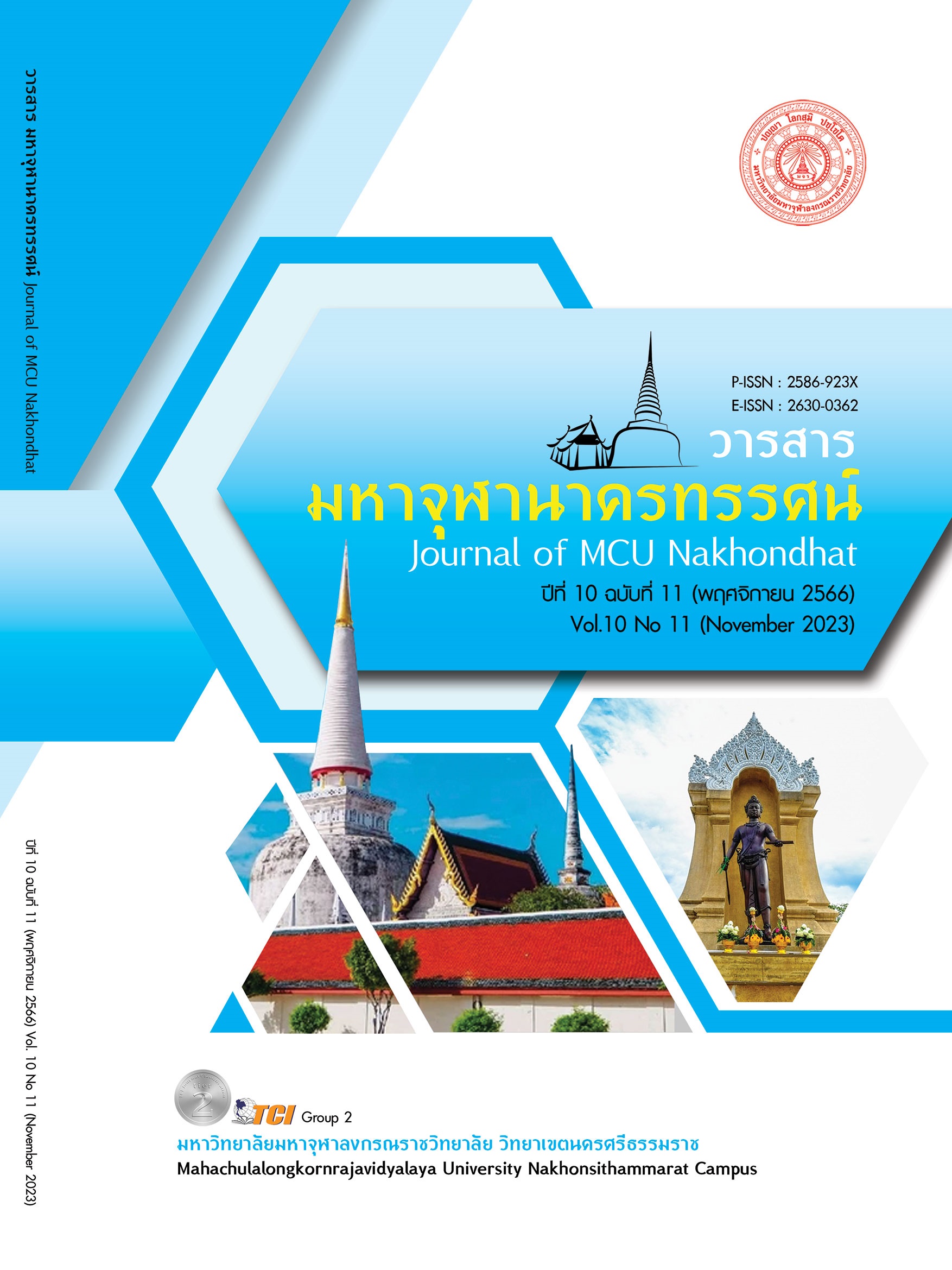ANALYSIS OF ARTICLE 112 OF THE THAI CRIMINAL CODE THROUGH LEGAL PHILOSOPHY
Main Article Content
Abstract
This Academic article on “Analysis of Article 112 of the Thai Criminal Code through Legal Philosophy (1)” has two objectives: 1) To study the essence of the law and the enforcement of Article 112 to determine the true essence of the law according to which legal philosophy concept. 2) To study There are different opinions on amending Article 112 as to what kind of legal logic or philosophy should be used. By Documentary Research Method (collecting and analyzing from various documents). From The study, it is found that: 1) The substance of the Act (criminal offenses and penalties) and the enforcement of Article 112 largely do not correspond to the essence of the law under legal naturalism, legal positivism or legal historicism which is objectively free of the 4 biases (Agati 4). They can be resolved without relying on any bias. 2) The different opinions regarding the amendment of the provisions of Article 112 were held or dominated (in the good or the bad). They are the framework of dominates, ideas, knowledges, Beliefs, and truths in various forms such as Religious, Educational, Social, Economic, and Political forms. They are causing different opinions. Importantly, they do not emphasize philosophical logic to use amendment for it. The Point is the bias can easily penetrate and affect the Justice and Freedom (rights, duties, and responsibilities) in democracies and governance systems. The solution should be to use wisdom and faith. With reason and good intentions Adhere to traditions appropriate to the era. In the approach of philosophy and legal philosophy, it is believed that it will lead to respect for different opinions from each other and to live together in peace.
Article Details

This work is licensed under a Creative Commons Attribution-NonCommercial-NoDerivatives 4.0 International License.
References
คำสั่งของคณะปฏิรูปการปกครองแผ่นดิน (ฉบับที่ 41). (2519). ราชกิจจานุเบกษา เล่ม 93 ตอนที่ 134 หน้า 46 (21 ตุลาคม 2519).
จรัญ โฆษณานันท์. (2561). นิติปรัชญา. (พิมพ์ครั้งที่ 20). กรุงเทพมหานคร: สำนักพิมพ์มหาวิทยาลัยรามคำแหง.
พนารัตน์ มาศฉมาดล. (ม.ป.ป.). แนวความคิดในการจัดทำกฎหมายลักษณะอาญา ร.ศ.127. เรียกใช้เมื่อ 22 กรกฏาคม 2566 จาก http://wiki.kpi.ac.th/index.php?title=% E0%B8%8 1%E0%B8%8E %E0%B8%AB%
พระราชบัญญัติให้ใช้ประมวลกฎหมายอาญา (ฉบับพิเศษ). (2499). ราชกิจจานุเบกษา เล่ม 73 ตอนที่ 95 หน้า 1 (15 พฤศจิกายน 2499).
มหาจุฬาลงกรณราชวิทยาลัย. (2539). โปรแกรมพระไตรปิฎกภาษาไทย ฉบับมหาจุฬาลงกรณราชวิทยาลัย. เรียกใช้เมื่อ 20 กรกฎาคม 2566 จาก http://www.geocities.ws/tmchote/tpd-mcu/tpd16.htm
วรเจตน์ ภาคีรัตน์. (2561). ประวัติศาสตร์ความคิดนิติปรัชญา. กรุงเทพมหานคร: สำนักพิมพ์อ่านกฎหมาย.
สมเด็จพระพุทธโฆษาจารย์ (ป.อ. ปยุตฺโต). (2562). พุทธธรรม ฉบับปรับขยาย. เรียกใช้เมื่อ 20 กรกฏาคม 2566 จาก https://www.watnyanaves.net/uploads/File/books/pdf/buddhadhamma_ extended_ ed ition.pdf
สมภาร พรมทา. (2561). “คำบรรยายวิชานิติปรัชญา ตอนที่ 1 - 10” ในศูนย์ศึกษาพุทธปรัชญา มหาวิทยาลัยมหาจุฬาลงกรณราชวิทยาลัย. เรียกใช้เมื่อ 15 กรกฏาคม 2566 จาก http://csbp.mcu.ac.th/
ไอลอว์ ฟรีดอม. (2558). วิวัฒนาการของ “กฎหมายหมิ่นประมาทพระมหากษัตริย์” ในรอบ 200 ปี ตามบริบทสังคมการเมือง. เรียกใช้เมื่อ 28 กรกฏาคม 2566 จาก https://freedom.ilaw.or.th/blog /His toryof112
Bentham, J. . (1969). Introduction to the Principles of Moral and Legislation. New York: Macmillan Co. Ltd.


